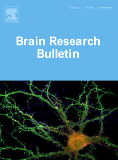 A brain research journal has retracted a 2016 study about epilepsy after an institutional investigation determined that some of the data were taken from another published paper.
A brain research journal has retracted a 2016 study about epilepsy after an institutional investigation determined that some of the data were taken from another published paper.
The retraction notice for the study — which appeared in Brain Research Bulletin — cites an investigation by the scientific integrity committee at Tongji University in Shanghai, China, which concluded the authors had engaged in “unethical publishing behavior.”
Here’s the retraction notice for “Clc-2 knockout attenuated experimental temporal lobe epilepsy in mice by tonic inhibition mediated by GABAA receptors:” Continue reading Data were “fraudulently obtained” in epilepsy paper, probe finds


 The BMJ is not going to retract a 2015 article criticizing the expert report underlying the U.S. dietary guidelines, despite heavy backlash from readers, according to the author of the article.
The BMJ is not going to retract a 2015 article criticizing the expert report underlying the U.S. dietary guidelines, despite heavy backlash from readers, according to the author of the article.
 The last author of a 1999 paper has asked the journal to retract it less than one month after a user
The last author of a 1999 paper has asked the journal to retract it less than one month after a user 

